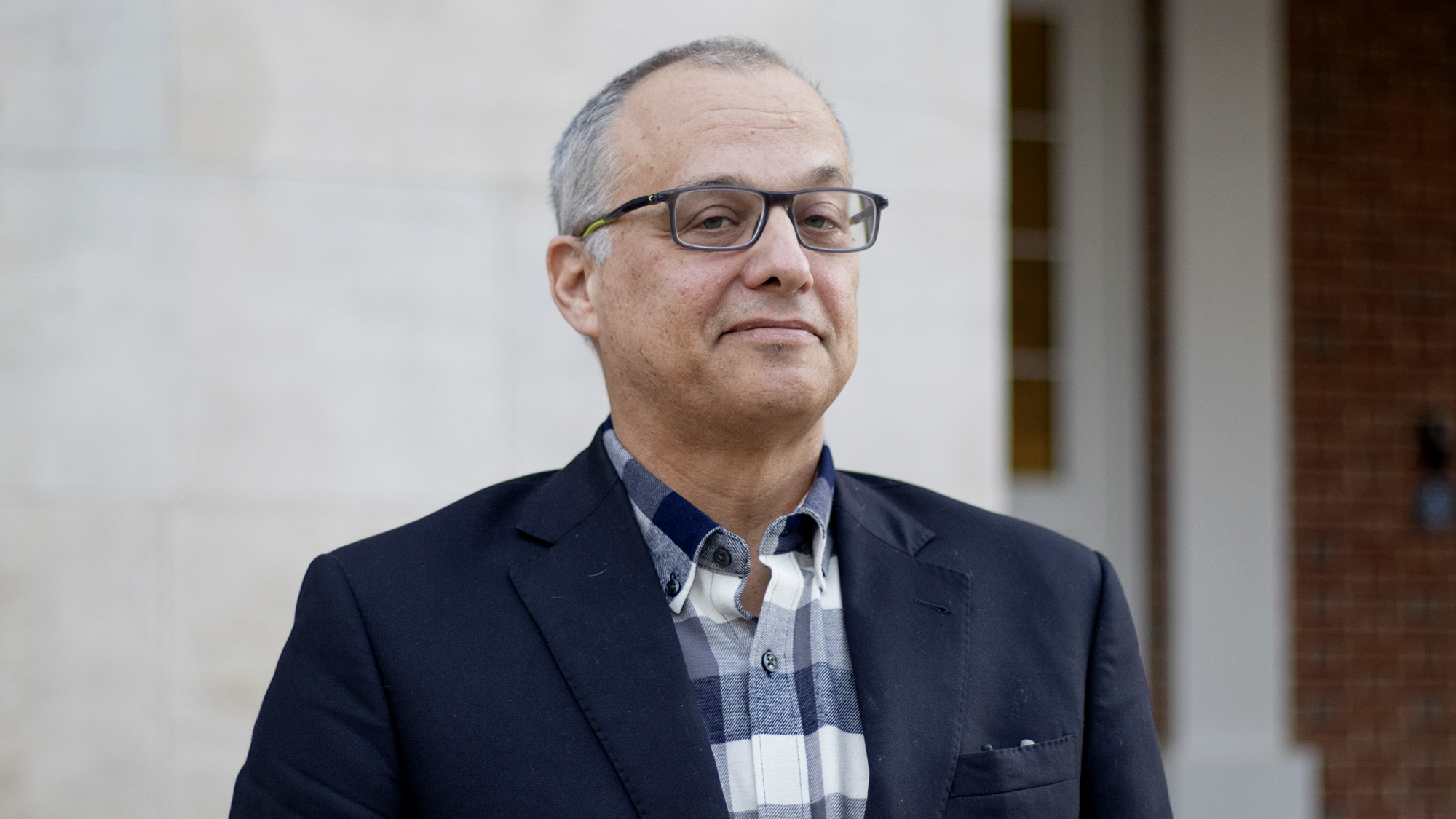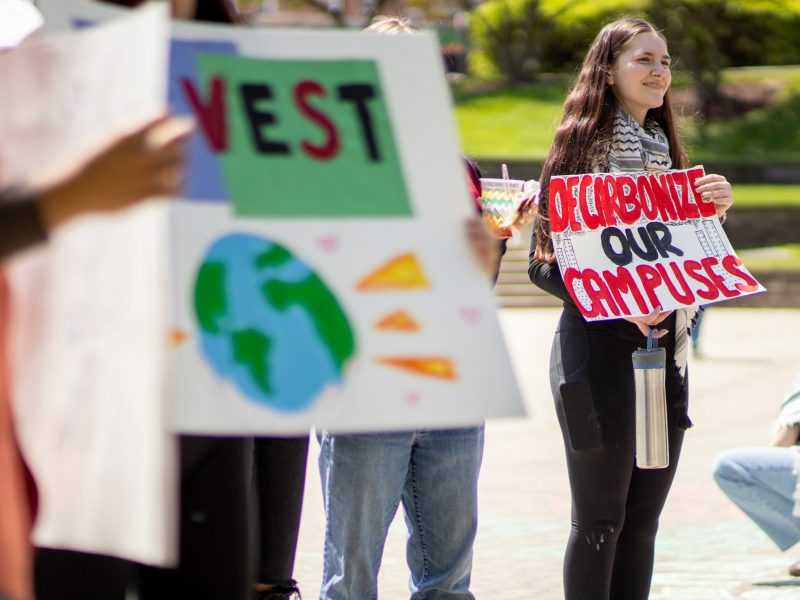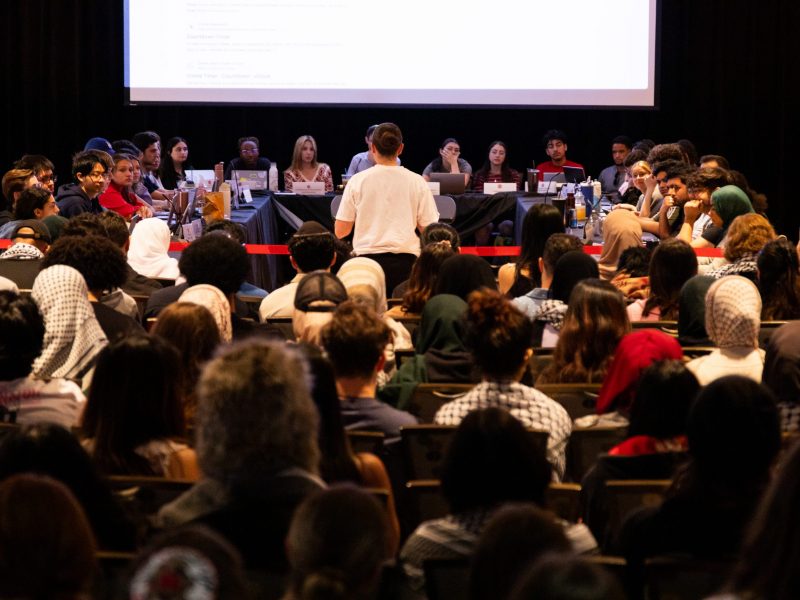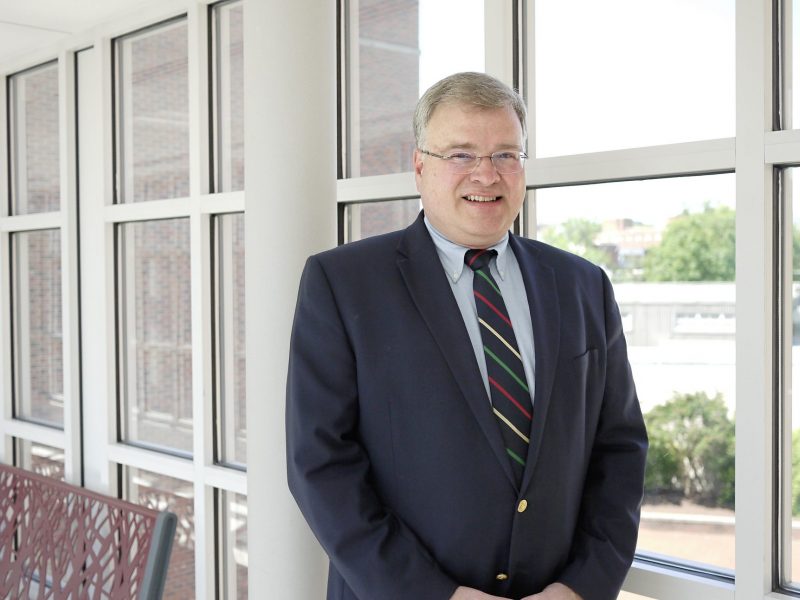In College Park, the University of Maryland acts as a bubble for students, senior government and politics major Presley Dawson said. But through the new MLaw refugee program, she hopes to build connections with the communities near the campus.
“As somebody born in America, I’ll never understand that journey … coming into a whole new life, a whole new cultural environment,” Dawson said. “And especially in the environment that America is today, I think just creating a sense of community is incredibly important.”
The university created a new MLaw program called MLaw Migrant Assistance Program. It was launched in October for students interested in pursuing a law and society minor who want to help refugees in Prince George’s County.
The program allows students to work with refugees in the surrounding community through tutoring and mentoring programs, while also being given the option to receive one credit for volunteering and connect it to their classwork, said MLaw programs director Dr. Robert Koulish.
The idea for the program sparked in January 2020 when students visited the U.S. Mexican border to learn more about struggles immigrants experience. However, it wasn’t able to come together until this past summer due to the pandemic, Koulish said.
The program works with Solutions in Hometown Connections, an organization that works with agencies to provide support and services to refugees, and Lutheran Social Services to help provide essential resources for refugees.
“They’re doing everything from ESL, English second language, working on financial literacy … and helping older students prepare to take GED exams or work on their English to do job interviews,” Koulish said.
[Latinx students at UMD weigh in on cultural center announcement]
Koulish inspired Noa Deutsch, a freshman enrolled in letters and sciences, and some of her classmates to become involved in the program through SHC.
“He definitely really pushed a lot of us to get involved in this, which I think is really nice because I don’t know that a lot of people would’ve gotten involved if it wasn’t for him,” Deutsch said.
Deutsch tutors an Afghan refugee in English. Although the refugee has been here for a few years with her family, she wanted to spend more time learning English because her children are in school, Deutsch said.
Aside from tutoring, Deutsch hopes to get more involved in the future when her schedule opens up by volunteering in other ways such as helping refugees move into their new apartments, she said.
“Being able to give these refugees the feeling of home at least in America is very important,” she said. “And setting up a space where they feel comfortable, since in a lot of other situations in life, they might not be comfortable.”
Dawson also hopes to get more involved in the spring semester as the program garners more interest and volunteers.
“There’s a lot of different ways to get involved,” she said. “But at the center of it is fostering a core sense of community within the greater College Park area.”
Other organizations that work with refugees on the campus include Every Campus a Refuge and Peer to Peer.
Diya Abdo, the founder of ECAR, feels the new MLaw program is a “wonderful initiative” and admires higher education for offering resources to refugees, especially because of the current Afghan crisis.
“It’s really important for higher education institutions who have those resources to step up at a time of great need, because the numbers are so high and because the resources have been so decimated,” she said.
[UMD South Asian Student Association holds panel on spirituality and faith]
Peer to Peer is a student organization on the campus that works with the International Rescue Committee, a refugee resettlement agency in Silver Spring, Maryland, to provide after-school tutoring for refugee students in public schools.
Molly Schreier, president of the organization, found that the new program can be helpful for refugees when they first arrive, those who have different learning experiences and need more support, she said.
“A little bit of training … goes a really long way in how you work with students,” she said. “It can be a learning curve for people who have never done it before.”
Koulish is looking forward to the program returning to the Mexico-U.S. border in the future and hopes the program’s goals become institutionalized with the university and university President Darryll Pines’ goals of diversity. He hopes to see the university reach out to the community more to increase the number of refugees and organizations they work with, he said.
“We want to make the university part of the community and … I want people to see the university as a safe space,” he said.



